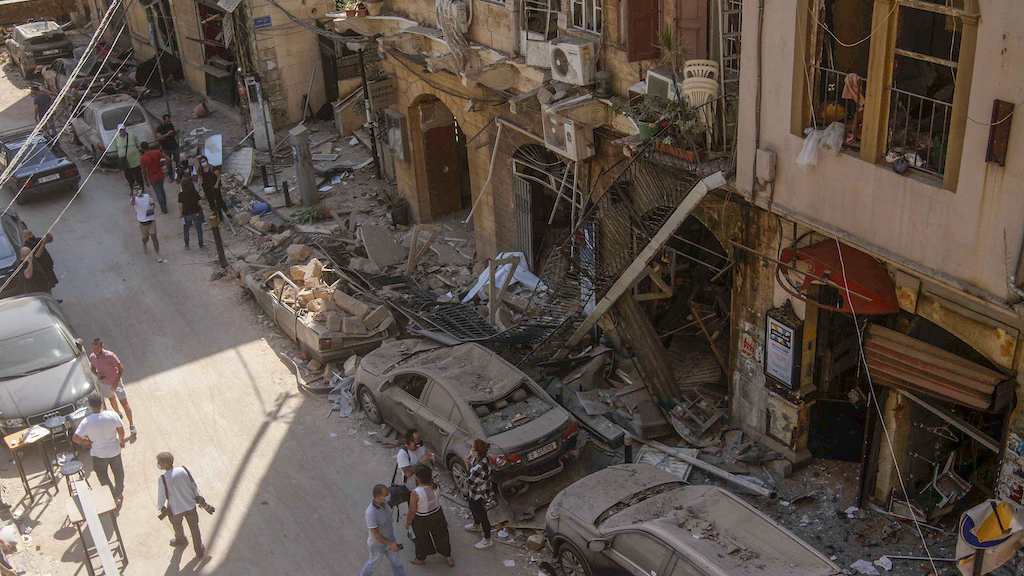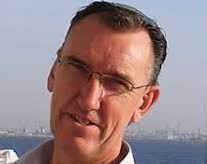Hezbollah Continues Anti-Israel Campaign
On 4 August 2020, a huge blast destroyed almost half of Lebanon’s capital Beirut, leaving more than 300,000 people without a home. The death toll has now exceeded 200 people. Nearly 3,000 tons of ammonium nitrate that had been stored in a hangar near the sea in Beirut’s port exploded. Within the next hour, Hezbollah and Israel came very close to a new war. Operatives of the Iranian- backed terror organisation thought that the Israeli military had something to do with the giant explosion. Two Hezbollah members told Sputnik News in Russia that “Hezbollah troops were immediately redeployed from the mountains to the coast in southern Lebanon, with rocket system operators ordered to their missile sites and told to be ready to fire”.
The truth, however, is that Hezbollah itself spread the narrative that the giant explosion was an accident caused by extremely high temperatures in the hangar which had no air-conditioning, nor a ventilation system.
Hezbollah has a track record of using and storing ammonium nitrate. Last year, it was caught storing the material in London and southern Germany, after Israel’s intelligence agency, the Mossad, tipped off the authorities in both countries.
Experts have pointed out that the blast in the port of Beirut could have been the result of work Hezbollah had conducted to produce missile fuel or explosives for the terror organisation to use in its attacks on Israel.
A retired American weapons expert of the US Navy, who wished to remain anonymous, told me that the second explosion, which created a purple-red smoke cloud, was the result of exploding nitrogen triiodide – an inorganic compound used for the production of missiles and explosives.
At the beginning of September, the Lebanese army found a new cache of the chemical agent near the port of Beirut. More than 4 tons of ammonium nitrate were found in containers near the port, but the Lebanese army said it had no idea who stored the material there.
Anyone who may have thought that the anger of the Lebanese people over Hezbollah’s activities in Lebanon – where the Shiite organisation dominates every aspect of life including the political system – would have a moderating effect on the Iranian proxy, got it dead wrong.
Despite a huge economic crisis that has left almost half of the Lebanese people without enough income to buy basic foods and that already existed before the giant explosions in Beirut’s port, Hezbollah continues its belligerent activities aimed at Israel.
Financial and Humanitarian Crisis
Lebanon is facing a financial and humanitarian crisis of massive proportions. The World Bank estimates that more than 50 per cent of Lebanon’s population is now living below the poverty line while the Lebanese currency Lira has lost 80 per cent of its value against the US dollar since the end of 2019. Negotiations with International Monetary Fund about a giant new loan failed after Lebanon defaulted on its debts to foreign investors last March.
In addition, Lebanon also faces a food crisis, exacerbated after the government raised the price of bread for the first time in a decade. People in the Cedar country have recently been rushing to supermarkets to buy food essentials, leading Al-Makhazen Coop, the largest food retailer in Lebanon, to close its branches in Beirut.
Then there is the energy crisis in Lebanon where citizens only get electricity for three hours per day and use candles to illuminate their homes at night.
To make things worse, Lebanon is hosting over more than a million Syrian refugees who aren’t able to return to their country of origin due to the continuous hostilities in Syria and due to the fact that their houses have been destroyed during the 10-year-long civil war in Syria.
Hezbollah, which has taken over Lebanon in every respect, offers no solutions to the current economic and financial crisis in the country and is only focused on its conflict with Israel.
Although the terror organisation has been targeted with sanctions by the US Administration of President Donald J. Trump, this hasn’t stopped Hezbollah from advancing its plan for the destruction of Israel.
Iran
Iran is financing almost all of Hezbollah’s activities, and the terror group also has income that comes from international criminal activities such as drug trafficking.
Besides these criminal activities, Hezbollah also fills its coffers by stealing money belonging to the Lebanese people and controls most of Lebanon’s economy.
The terror organisation is active in other countries such as Syria, where it helps Iran building the so-called Golan Liberation Brigade, which consists of Shiite fighters from countries as far away as Afghanistan and Pakistan.
Hezbollah operatives are also helping the Ansar Allah (the Houthi militia) in Yemen which is constantly terrorising Saudi Arabia and tries to bring down the official Yemenite regime.
Israel, however, remains Hezbollah’s main target, as we saw over the past months with several incidents between Hezbollah and the Israeli military (IDF and IAF).
After the Israel air force launched an attack on a shared Iranian, Syrian, and Hezbollah base near Damascus and killed Hezbollah operative Ali Kamel Mohsen Jawad on 20 July, Hezbollah retaliated by infiltrating Israel in the area of Har Dov eastward of the town Metullah in the upper Galilee.
The infiltration attempt was prevented by the IDF who subsequently refrained from killing the Hezbollah terrorists to avoid a new war between Israel and the Lebanese terror group. But the ensuing tank fire on the location of the group of Hezbollah terrorists was enough to make them retreat to Lebanese territory.
Several days later Hezbollah again tried to harm IDF soldiers when it fired shots at an IDF position near Kibbutz Manara. In this case, too, the Israeli army retaliated by using attack helicopters and warplanes which – for the first time since the Second Lebanon War of 2006 – bombed Hezbollah’s positions inside Lebanon.
The IDF remains on high alert and is prepared for the possibility that Hezbollah could launch new attacks on Israel before or during the Jewish High Holidays.





